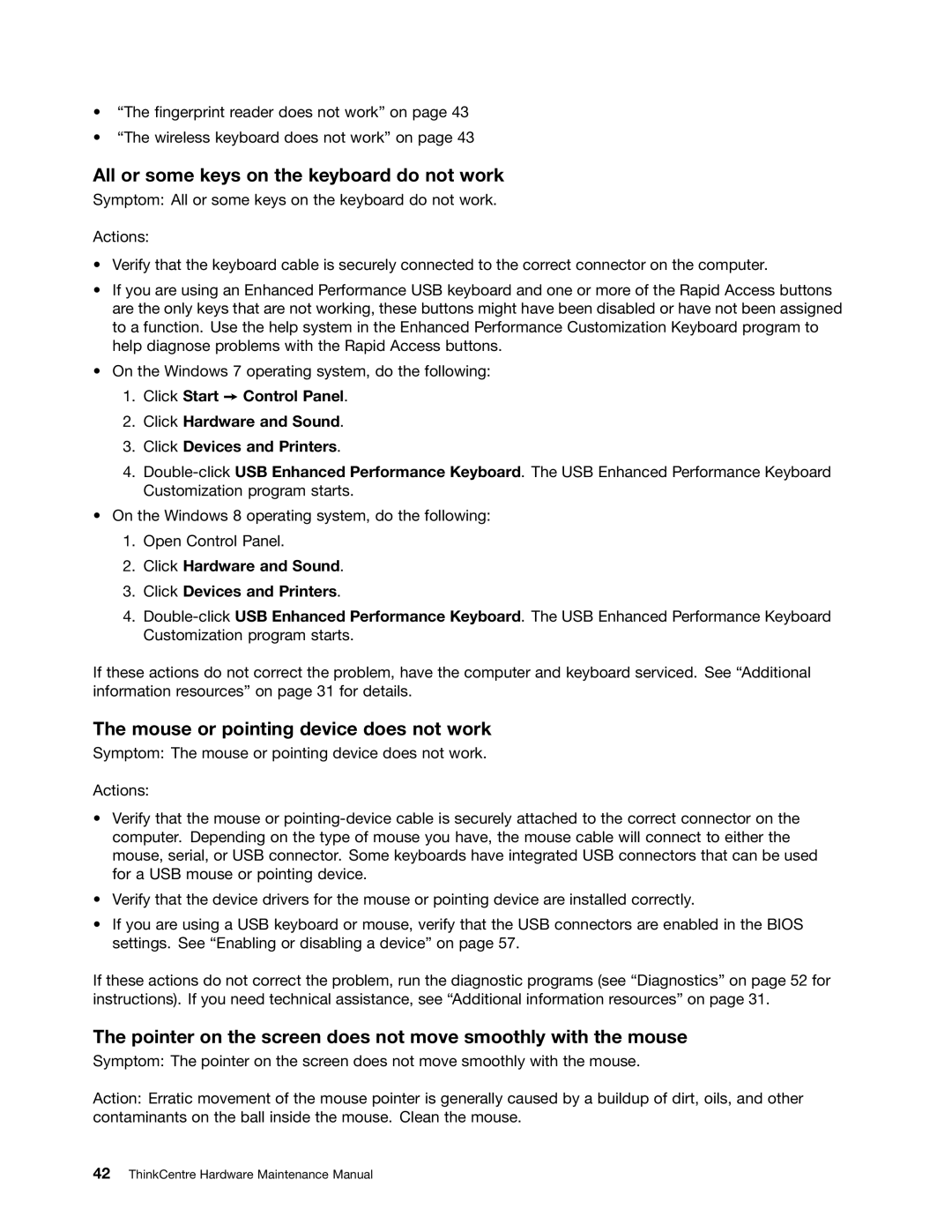•“The fingerprint reader does not work” on page 43
•“The wireless keyboard does not work” on page 43
All or some keys on the keyboard do not work
Symptom: All or some keys on the keyboard do not work.
Actions:
•Verify that the keyboard cable is securely connected to the correct connector on the computer.
•If you are using an Enhanced Performance USB keyboard and one or more of the Rapid Access buttons are the only keys that are not working, these buttons might have been disabled or have not been assigned to a function. Use the help system in the Enhanced Performance Customization Keyboard program to help diagnose problems with the Rapid Access buttons.
•On the Windows 7 operating system, do the following:
1.Click Start ➙ Control Panel.
2.Click Hardware and Sound.
3.Click Devices and Printers.
4.
•On the Windows 8 operating system, do the following:
1.Open Control Panel.
2.Click Hardware and Sound.
3.Click Devices and Printers.
4.
If these actions do not correct the problem, have the computer and keyboard serviced. See “Additional information resources” on page 31 for details.
The mouse or pointing device does not work
Symptom: The mouse or pointing device does not work.
Actions:
•Verify that the mouse or
•Verify that the device drivers for the mouse or pointing device are installed correctly.
•If you are using a USB keyboard or mouse, verify that the USB connectors are enabled in the BIOS settings. See “Enabling or disabling a device” on page 57.
If these actions do not correct the problem, run the diagnostic programs (see “Diagnostics” on page 52 for instructions). If you need technical assistance, see “Additional information resources” on page 31.
The pointer on the screen does not move smoothly with the mouse
Symptom: The pointer on the screen does not move smoothly with the mouse.
Action: Erratic movement of the mouse pointer is generally caused by a buildup of dirt, oils, and other contaminants on the ball inside the mouse. Clean the mouse.
